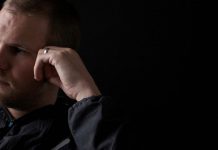In a conversation with Dr. Shelly-Ann Bowen, we discussed her research on what determines whether someone will be active or passive in the face of catastrophic events—fires, floods, or a cancer diagnosis. Social injustice, a lack of self-awareness, and even an immature understanding of faith paralyse action. But there are ways to make positive changes.
One of the research projects you participated in focused on the factors that determined the population’s response to alert messages during Hurricane Katrina, which hit Louisiana more than a decade ago.
It is. I found a mentality that can be expressed in the words, “We’ve been through this before.” I studied people who didn’t leave when they were told they had to leave. As we know, there were also communication problems from the authorities. However, it was also a matter of mentality. Many people said, “We went through other storms. It won’t be any worse.”
It won’t be bad enough to leave…
Yes. The consequence of this mentality was: “I will do nothing, I will wait for the hurricane to come, it will all be the same as in other times and everything will be fine after it passes.” But this hurricane was not like the others. Many people died, many were separated from their families, children, their properties were destroyed and some even had to be rescued by helicopter. There were cases where people were on rooftops for days surrounded by water. It was a disastrous experience.
Did you manage to create a profile of those who did not follow the evacuation order? Were they part of a certain social, economic, or racial category?
Yes. These were generally disadvantaged people below the federal poverty line. They were the victims of institutional and infrastructure factors. For years, these people had not been supported and were convinced that they could not trust the authorities giving them advice. Here is how they thought: “I had to fight these problems alone for so many years, and now you are telling me to leave? You haven’t cared about me in years, so now I won’t follow your orders!” Or: “I worked hard and I managed to buy this small property, and now you are asking me to leave it? Who will take care of it? Everything I have will be stolen from me!” Or, “Who will care for me? Where are you sending me? I feel like you’re taking advantage of the situation to get me out of here. I’m not going!” Many did not have a car, so they had nothing to leave with. Others had a car, but no gas money.
Eventually, some took the evacuation order seriously, but it was too late, the roads were already flooded, so they said to themselves, “I’ll just sit here and wait for it to pass.”
In general, people favoured the idea that, all in all, it would be fine, so they did nothing. Others understood that it was going to be a disaster, but they did not think they could change anything and this made them have an almost fatalistic perspective.
Another research project you conducted explored the relationship between personal responsibility in decisions that affect health and structures, social systems, history, culture, and values.
Yes. Health and lifestyle change is a very complex issue. Following a model that I have used quite often in my studies, I have discovered that people make the decision to change based on three factors: the perception of the risk of getting sick, the belief that a change is useful to them, and the perception of their ability to make a change and of their perseverance to sustain this change over time.
Often, people do not even initiate changes in health behaviour. They tell themselves: “I am not able to maintain a certain diet for a long time in order to keep fit, so I’ll stay as I am. Effort and suffering are useless.”
They feel they are not worth it?
I also tried to get people to be heard, so I talked to those who live with different diseases and those at high risk of getting sick. I tried to find out from them what are the obstacles to the changes they should make. I looked at this subject from the perspective of social injustice. For example, I wanted to understand why women of colour were less often diagnosed with breast cancer, but were at higher risk of dying from the disease than white women.
What did you find?
At one point, authorities implemented a program that allowed women who were 250% below the federal poverty line and diagnosed with breast cancer to have free access to treatment. I found out that these women went to the doctor, were examined annually, but when the results indicated the presence of cancer, they did not return for treatment. I wanted to understand why. Remember that everything was free: a second diagnostic exam and, if confirmed, complete treatment, access to the social assistance system, et cetera.
At the time of diagnosis, did the women know that they had a second examination and treatment for free?
Yes, and they weren’t going back to the doctor. When I got into all these complex issues, I understood that this behaviour was motivated by institutionalised racism and expectations based on lived experiences. These women said to themselves, “I will be consulted by a doctor who does not look like me, who does not speak like me, and who will condescend to me because they’re so aware of the power of their authority, and who will speak to me in a way that will make me feel a lesser human.” I was glad that I was able to bring these perceptions of history to the surface, to give a voice to these women. But they need to talk themselves.
It’s disturbing, because they were in a situation of life and death. They knew full well that treatment was available for free. However, by virtue of an unfortunate history, they decide to do nothing. But maybe there’s also an economic component. If they start treatment, they are afraid that they will not be able to go to work.
Exactly. That was part of the problem. Some of these women were employed on a seasonal basis. If they asked to be released from work, even for a check-up, they would have not been paid, the family would have been left with less money for food and childcare and it even increased the woman’s risk of losing her job.
But without treatment, after a few months or a few years, they would be less able to help their families, or maybe not at all. It is very disturbing, because it is no longer just about personal life and death, but also about a very dramatic situation for the family.
As I said, the perception of those racial disadvantages is so strong that it becomes a barrier to treatment. For so many years they have been discriminated against by the system, they have seen their mothers and grandmothers with breast cancer not treated well in the health system, the doctor’s communication was not adequate from the beginning, so they decided: “I’m not going back in there.” And one more thing: they were convinced that God would help them, save them.
So there was an important religious component. Tell me more about this.
It is important to have a solid, Bible-based understanding of God’s attitude toward human disease. Faith, properly understood, motivates us to do what we need to do.
I found out from the study that these women were faithful and wanted to live, so that their children would have different circumstances from those seen by their mothers. When they lost confidence in infrastructure and health policies, they found strength in faith in God. It was as if they were saying, “I went to the doctor, he didn’t talk to me, I didn’t feel respected, so I will go home, spend time with God, go to my community of faith and we will find a way to heal and overcome the situation. Because you have been trying to stop me for so many years, I no longer have the confidence to want the treatment you are giving me. ”
And you are a person of faith, and of prayer. What is your position, do you think that prayer and medical intervention are mutually exclusive, that you have to choose between one or the other?
They do not exclude themselves at all and do not intertwine only at one point, but merge completely, because if you trust God, you also understand that He is such a good God that He is interested in everything that is related to you. If a doctor tells you something good, the doctor is, of course, guided by Him.
My own experience, although I am a educated woman, confirms my research and literature. I went to a doctor and I was spoken to in a way that showed me that I had no hope, because of a certain health history, because I am a woman of colour and that women of colour are prone to my disease. The medical system is not sensitive to racial and cultural issues so that it will give me information as a woman of colour, to understand my past, to respect my values, hopes and to present me with recommendations so that I can understand them.
When you get a diagnosis like the one these women receive, your first reaction is: “This disease is going to kill me!”
You are confused and cannot process the information you receive. You probably went to the doctor alone, because everyone else is working. The doctor speaks to you in terms that you would not understand even under normal conditions, much less in a state of panic and confusion because of the news the doctor has just given you.
The situation would be different if you were told: “It is a hard blow, but do not lose hope. I have treated many other people in your situation, I am confident that everything will be fine in the end!” This is the kind of commitment these women want, but have not received from their doctors.
Over the years, part of my job has been to highlight social inequities, with this message: “It is not acceptable that socioeconomic or educational status dictate the treatment or any other kind of medical intervention a person receives.”
You published this research more than ten years ago. Have the changes that the study recommended been made?
There are areas that have improved, but enough shortcomings still persist. Changes involving legislative and infrastructure are taking place quite slowly. The real transformation of conceptions, mentalities, attitudes, patterns of thinking and action are very complex processes that take a long time. We have no illusions—we try to do our duty and we have patience.
Conversations you have had with women who have abandoned the process of diagnosing and treating breast cancer have shown you that their dialogue with doctors has often been marked by dysfunctions. What can be done, given the decisive nature of these discussions, for better or for worse?
Of course, it emerged that it is extremely important that doctors approach patients as human beings, not just as carriers of certain diseases, that they listen and observe them in order to understand their cultural, economic, and even religious contexts, and that they use accessible language.
But I would like to say a few things to those who are going to the doctor. First of all, don’t feel like your voice isn’t heard. Many times, you see someone in a white robe, speaking in such high and authoritative terms, and because most of the time our doctors are men, you position yourself in front of them as in a parent-child relationship, more precisely a father-daughter relationship. But that is not right. It is a relationship between two adults, and the patient must take responsibility for her own health and decisions related to it.
One way to overcome this approach is, when you know you are going to the doctor, to make a list of the things you want to talk to him about, what pains and problems you have, and in what ways you need his help.
We often leave the office and think: I should have asked him this and that. But you can’t go back and say, “I have more questions.” The opportunity is gone.
Exactly. The consultation lasts 15 minutes, this is the time to discuss your list with your doctor. In the event of receiving devastating news about the diagnosis, take someone with you to the consultation, as you will not be able to hear or process the information adequately. Your mind will be stuck on the news, not the solutions. You don’t hear anything else. Suddenly, you see your life turned upside down, nothing is as you planned, not even a small thing, such as preparing dinner that night for the family. Take someone with you for such an eventuality, who will be able to continue the discussion and get the necessary information.
Going a little further, what would you like to say to those who have received a serious diagnosis?
First of all, it is important to start realising that you have the ability to make the necessary changes. Let’s say it’s hypertension or diabetes, or another chronic disease. These are related to lifestyle—diet, physical activity, sleep time, et cetera. You need to tell yourself that you have the ability to make the necessary changes. Maybe you live in a place where you don’t have the necessary conditions to go out and do sports, maybe you don’t have a gym or maybe that doesn’t fit in your schedule. However, at some point, you have to choose to say, “I can’t do physical activity on the street, because I’m not safe, but at the school in my neighbourhood there’s a sports field, I’ll go there for a few laps.” Get some friends or kids to do some physical activity together with you.
The risk of getting sick can be counteracted. You don’t have to get diabetes just because your mother and grandmother had it. Maybe you’ve seen the way they’ve lived and maybe they’ve had an amputation, but that doesn’t predestine you to end up the same. Just because you’ve had the wrong way of life so far doesn’t mean there’s no point in changing. Set realistic goals and build on small, sustainable changes.
Before concluding, let us return to the role of religion in responding to disease and other life-threatening blows. We should read the Bible and have a life of prayer in a way that increases our responsibility, not replaces or removes it.
That’s right. You spend time with God, you ask Him to help you, He guides you to the right decisions and gives you a direction to go in. But we must also take responsibility for ourselves. When we pray, let us say, “Lord, I want a better quality of life. Can you help me do these things, can you guide me?” When we receive guidance, we have a responsibility to move forward and do what He wants us to do. God does not want us to be prisoners of history, but to write a new history with Him.
It’s sad to say this, but I think sometimes we keep a childish perspective on God.
God wants us to grow up, to live a full life, to look each other in the eye, not from above. I think Paul expresses this best: When I was a child, I thought and spoke like a child, now I behave differently as an adult.
I rejected what was childish…
Yes. When we turn to God, because He is always by our side, He meets us where we are and His purpose is that we grow and let experience strengthen our faith. After a while, we will be able to talk to others about our faith, to witness to others in a similar situation.



















